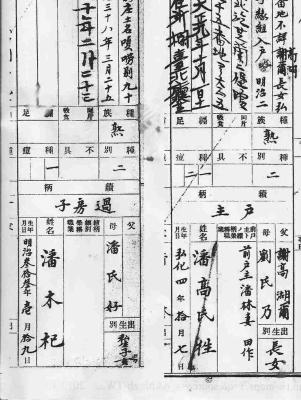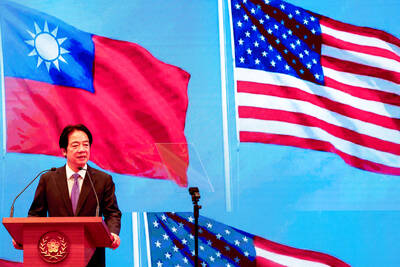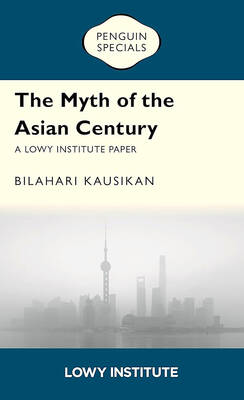Sept. 5 to Sept. 11
During an interview with the Los Angeles Times in 1972, Chang Chin-lan (張金蘭) called out then-US president Richard Nixon for not appointing a woman to the Supreme Court.
“I was very happy when I heard President Nixon was thinking of appointing a woman to the Supreme Court,” she said. “Then I read in the paper that he did not appoint a woman and I was disappointed. Maybe next time.”

Photo: Han Cheung, Taipei Times
“Women judges are generally more conscientious and hard-working than [male] judges,” Chang added.
Chang, who had been breaking gender barriers since she became Taiwan’s first female presiding judge of an appellate court at the Taiwan High Court’s Tainan Branch Court in 1948, had already made it to the Supreme Court in 1956. It would take the US nine more years after the interview and a new president before Ronald Reagan appointed Sandra Day O’Connor.
Chang’s career did not stop there. In August 1967, she reached another milestone when then-president Chiang Kai-shek (蔣介石) nominated her as one of the 15 grand justices of the Constitutional Court. Her main task was to interpret the constitution and national laws, but she also had the power to provide rulings over impeachment of the president and vice president as well as dissolve a political party violating the constitution.
Finally, Chang’s career was recognized internationally on Sept. 5, 1973, when the US-based World Peace Through Law Center (today’s World Jurist Association) presented her with the Pax Orbis Ex Jure Award during its biennial conference in the Ivory Coast.
In addition to her judicial duties, Chang was also a tireless educator and served on a team to research and amend the Criminal Code. She died of cancer in 1975.
LITTLE KNOWN MILESTONE
Unfortunately, despite her achievements, very little can be found about Chang’s life and career. Only three official sources are available — the Los Angeles Times article, a short Wiki entry and an entry in the book, Women Who Challenge the Times (向時代挑戰的女性) by Lu Shen-fang (盧申芳).
A native of China’s Shandong Province, Chang received her law degree in 1940 from Northwest University in Xian in Shaanxi Province. She was not only the only female in her graduating class, but also finished with top honors.
Chang was working as a judge in Nanjing when the Chinese Nationalist Party (KMT) lost the Chinese Civil War, and she retreated to Taiwan with them, continuing her judicial career upon arrival.
Lu writes that Chang “would release the innocent and reduce the sentence for those with extenuating circumstances — but for the unrepentant with solid evidence of their crimes, she would have them executed without hesitation.”
Lu provides the example of a kidnapping case when Chang was still in China that involved a notorious criminal so powerful that no judge dared touch the case. Chang took it on, and despite repeated threats from the criminal’s associates, she personally presided over the execution.
“They had no idea that even though she was a young woman, she was a true tiger who was not afraid of jackals,” Lu writes.
During her time in Tainan, Lu writes that Chang employed women and provided them with opportunities for advancement. She also presided over several high-profile cases, including a mass bribery scandal at the Kaohsiung pier that bolstered her reputation.
Lu also details Chang’s family life, stating that she believed that women had the ability to not only be “successful both at home and at work but also govern a nation.”
Despite her confidence, there presumably were still challenges as one of the few women working in the government at Chang’s level. Former Examination Yuan member Chia Fu-ming (賈馥茗) tells Academica Sinica in an oral history interview, “There were only three female appointed officials in those days — us two Examination Yuan members and grand justice Chang Chin-lan. Even though we held high positions and had great reputations, we still encountered many frustrations that would not be understood by outsiders.”
However, Chang told the Los Angeles Times that she encountered no discrimination.
“I’ve had complete respect from men, even when I started at the age of 23,” she said. “If I had any problems, I wouldn’t have kept at it for 30 years.”
“It’s easier for women to become judges since others have done it,” she continued. “There is no longer the excuse that women can’t do it.”
Taiwan in Time, a column about Taiwan’s history that is published every Sunday, spotlights important or interesting events around the nation that have anniversaries this week.

Feb. 9 to Feb.15 Growing up in the 1980s, Pan Wen-li (潘文立) was repeatedly told in elementary school that his family could not have originated in Taipei. At the time, there was a lack of understanding of Pingpu (plains Indigenous) peoples, who had mostly assimilated to Han-Taiwanese society and had no official recognition. Students were required to list their ancestral homes then, and when Pan wrote “Taipei,” his teacher rejected it as impossible. His father, an elder of the Ketagalan-founded Independence Presbyterian Church in Xinbeitou (自立長老會新北投教會), insisted that their family had always lived in the area. But under postwar

In 2012, the US Department of Justice (DOJ) heroically seized residences belonging to the family of former president Chen Shui-bian (陳水扁), “purchased with the proceeds of alleged bribes,” the DOJ announcement said. “Alleged” was enough. Strangely, the DOJ remains unmoved by the any of the extensive illegality of the two Leninist authoritarian parties that held power in the People’s Republic of China (PRC) and Taiwan. If only Chen had run a one-party state that imprisoned, tortured and murdered its opponents, his property would have been completely safe from DOJ action. I must also note two things in the interests of completeness.

Taiwan is especially vulnerable to climate change. The surrounding seas are rising at twice the global rate, extreme heat is becoming a serious problem in the country’s cities, and typhoons are growing less frequent (resulting in droughts) but more destructive. Yet young Taiwanese, according to interviewees who often discuss such issues with this demographic, seldom show signs of climate anxiety, despite their teachers being convinced that humanity has a great deal to worry about. Climate anxiety or eco-anxiety isn’t a psychological disorder recognized by diagnostic manuals, but that doesn’t make it any less real to those who have a chronic and

When Bilahari Kausikan defines Singapore as a small country “whose ability to influence events outside its borders is always limited but never completely non-existent,” we wish we could say the same about Taiwan. In a little book called The Myth of the Asian Century, he demolishes a number of preconceived ideas that shackle Taiwan’s self-confidence in its own agency. Kausikan worked for almost 40 years at Singapore’s Ministry of Foreign Affairs, reaching the position of permanent secretary: saying that he knows what he is talking about is an understatement. He was in charge of foreign affairs in a pivotal place in